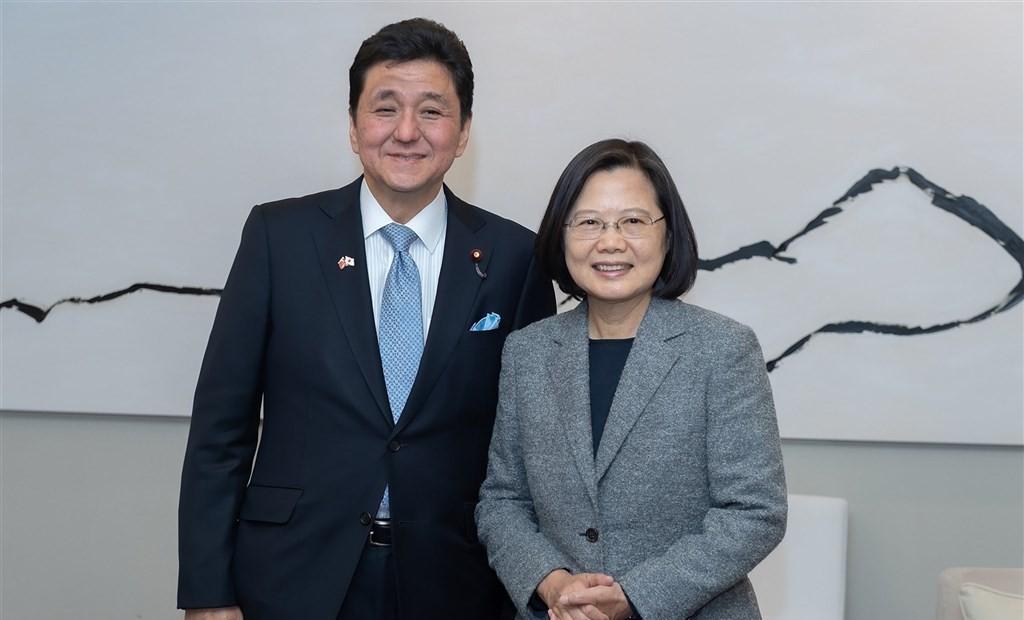Japan and Australia are both U.S. allies, and while they are very different in every way, they share a common goal: not to make China feel better.
Not long after the Tokyo Olympics, the pair of "good brothers" began to speak again.
On the 12th, according to the Sydney Morning Herald, Japanese Defense Secretary Nobuo Kishi said that the changing balance of power between the United States and China has "become very obvious", and the military balance on Taiwan has been "greatly biased towards Beijing"; he also said: "Australia has considerable influence in Southeast Asia and over the Pacific islands, so I hope That Australia can show leadership [of Taiwan's defense stability'." ”

Kishi nobuo did not forget to whitewash Japan and induce Australia to act together: "In order for us to be able to meet these challenges, what we must do is to strengthen our own defense capabilities, Japan's defense policy is not aimed at any specific country, but given that the security environment around Japan is becoming more severe, we must build a structure that can protect itself." ”
It is really Japanese to highlight their "purity", smear the opposing sides of interests, and not forget to patiently exhort allies to act together.
Historically, the United States has tasted a lot of economic and military sweetness in the Pacific, which makes the United States always attach importance to its own interests in the Pacific. The three countries of Japan, India and Australia in the Pacific Rim are not only inextricably linked to the United States, but also are economic or resource powers. The United States has long been interested in the potential advantages of the "four-nation mechanism."
Now, after Biden came to power, he has brought the United States, Japan, India and Australia closer together, and wants to truly institutionalize these four countries. Since the beginning of this year, under the mediation of Biden, the exchanges and communications between the four countries have increased. Also on the same day, senior officials from the four countries held a video conference to review the discussions at the summit meeting on March 12 this year, focusing on the COVID-19 pandemic and economic and trade in the Indo-Pacific region. But China, as an obstacle to U.S. continued world domination, cannot be ignored in the meeting of the four countries.
The main purpose of the "four-country mechanism" is military purposes. Although China has always pursued a policy of peaceful diplomacy, its growing military power has made Japan, India and even the United States fearful. Therefore, strategic actions in China's surrounding areas, strengthening infrastructure construction, and even interfering in China's internal affairs (the South China Sea issue, the Tibet issue, etc.) are all within the scope of discussion among the four countries.
Watching a military chain stretching for tens of thousands of kilometers slowly form in front of China, we have to heighten our vigilance and never allow the United States, Japan, India, and Australia to gain full advantage.
Although the four countries seem to be united and synchronized in direction, in fact, each has its own careful thinking, and even the United States is difficult to balance.
Japan is closer to Russia and China, and has always maintained close relations with China in economic and trade terms. In 2020, the total trade between China and Japan was 317.53 billion US dollars, and this number is still growing. Naturally, Japan is unlikely to allow this lucrative trade belt to be shut down by some tangled military issues.
India, as the sole power of the South Asian subcontinent, is even more arrogant, cooperating with the United States only out of profit, and is not willing to follow the United States in its heart. This can be seen in India's own positioning of leaving the United States and becoming a BRICS country.
Although Australia has closely followed the United States after Morrison came to power, and even made it tougher and more extreme than the United States in the confrontation with China, this is only because after gaining the trust and help of the United States, China's military threat to it will be reduced to a certain extent.
If consensus cannot be reached, the seemingly solid "four-nation mechanism" is nothing more than a rusty chain.